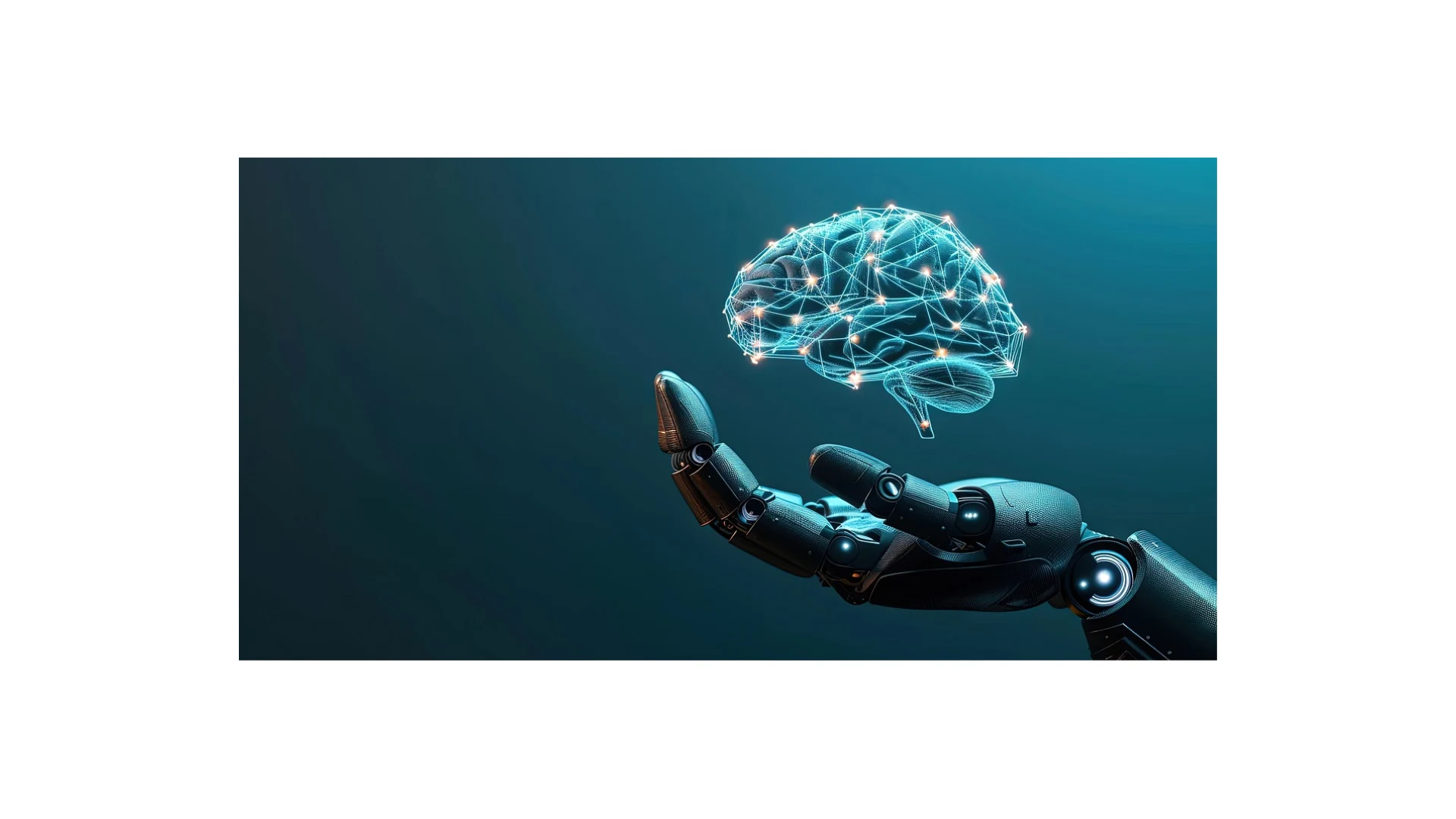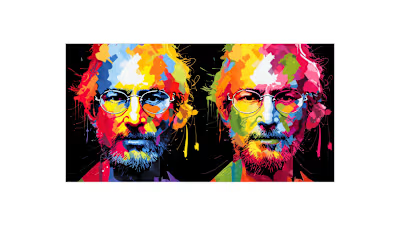EN - LINKEDIN AI POSTS

LinkedIn content strategy for MIT Professional Education – AI Certificate program
Post - History fact
Did you know Amazon was a pioneer in applying artificial intelligence to e-commerce… back in 2003?
That year, the company began implementing its personalized recommendation system, based on machine learning, a branch of artificial intelligence.
Today we talk about generative and agentic AI, but at the time, this was a major technological leap.
Amazon used an algorithm called item-to-item collaborative filtering, which analyzed the behavior of millions of users to predict what each person might want to buy. It became one of the first large-scale applications of AI that didn’t just enhance the customer experience, it transformed the business model itself.
It didn’t generate images. It didn’t write text. It wasn’t autonomous. But it was artificial intelligence.
And it laid the foundation for what we now recognize as personalization, intelligent automation, and data-driven business strategies.
What Amazon proved back then is that AI, even before it was in the spotlight, had the power to optimize core processes and drive lasting competitive advantage.
Today, that legacy has evolved into even more powerful technologies: Generative AI to create content. Agentic AI to make decisions. Cloud, IoT, and cybersecurity to scale securely and efficiently.
Digital transformation doesn’t happen overnight. It’s a process of evolution. And understanding the breakthroughs of the past helps us lead the future with clarity.
Sources:
Post - 5 things you need to know/learn now
5 Skills That Will Set You Apart in the Digital World Over the Next Few Years
Understanding AI beyond the hype It’s not just about “using ChatGPT.” It’s about knowing what agentic AI is, how to delegate tasks to autonomous systems, and how to design intelligent decision-making workflows.
Knowing which technologies are actually reshaping industries: Blockchain, IoT, cloud computing, and cybersecurity aren’t future trends, they’re already transforming products, processes, and business strategies in leading organizations.
Leading hybrid teams of people and systems Leadership today requires more than coordination. It means knowing when to intervene, how to configure smart tools, and how to evaluate their performance.
Identifying the real digital risks The biggest risks aren’t just technical, they’re strategic. A lack of digital vision, poor cybersecurity practices, or misunderstanding the ethical implications of AI can seriously limit growth.
Embracing cultural awareness as a driver of innovation Cultural diversity isn’t just a value, it’s a catalyst for creativity, global expansion, and successful entry into new markets. Innovation doesn’t thrive without a global mindset.
How do you lead digital transformation when the tech landscape keeps expanding?
Today’s organizations need professionals who can identify the right technologies, apply them strategically, and drive measurable outcomes.
The Professional Certificate Program in Digital Transformation in the AI Age from MIT Professional Education equips you to do exactly that:
➡ Learn how to apply key technologies—including AI, IoT, Cloud, Blockchain, and Cybersecurity—with a business-first mindset.
➡ Develop critical thinking and innovation-driven leadership skills in digital environments.
➡ Explore how these technologies interact and reshape real-world processes across industries.
👉 Learn more and register today: https://online.professionalprogramsmit.com/certific…
Post - Quizz
What part of your role would you delegate to an intelligent system?
With the emergence of agentic AI, we are no longer speaking solely of task automation. We’re entering a new era, one where systems can make decisions, execute processes, and adapt in real time, with minimal human oversight.
This raises a timely and relevant question for today’s professionals: Which aspects of your responsibilities could be entrusted to an autonomous AI?
Participate in the poll and share your perspective in the comments: Have you already implemented similar tools? What concerns or opportunities do you foresee? What would you be most interested in exploring?
💬 This is a space to exchange insights, learn from others, and reflect on how intelligent systems are reshaping our ways of working.
We look forward to your contributions.
Poll:
Managing emails and repetitive tasks
24/7 customer support
Analyzing complex data
None, I prefer to keep full control
Post - If you are a... You need to know...
Leading a team?
Then agentic AI is something you need to understand.
The next wave of automation isn’t just about saving time, it’s about building systems that can think, decide, and act autonomously.
Agentic AI allows organizations to design workflows where intelligent agents make decisions, generate tasks, and execute them without constant human input.
This shift is already transforming how we manage operations, deliver customer service, and innovate products.
If you lead people or projects in digital transformation, business development, or operations, understanding how to delegate to autonomous systems isn’t just useful, it’s essential. It’s how you scale, stay efficient, and reclaim time for high-impact work.
And with that comes a new leadership skill set: knowing when to intervene, how to measure outcomes, and how to train these systems to align with your goals.
Leadership today isn’t just about managing people. It’s about collaborating with intelligent systems that extend your capabilities.
Post. Visual comparative (Before / after)
Customer service used to be reactive. Now, it’s about staying one step ahead.
Not long ago, support teams spent countless hours answering the same questions: limited resources, long wait times, and frustrated customers.
Today, with the help of artificial intelligence, organizations can offer 24/7 automated support, while human teams focus on what truly matters: solving complex issues and delivering value.
AI doesn’t replace people. It empowers them. It frees up time, energy, and attention, so teams can design smarter, faster, more human experiences.
Automation is no longer just an operational choice. It’s a strategic decision that reshapes how organizations connect with people.
The future isn’t just technological. It’s collaborative.
#DigitalTransformation #ArtificialIntelligence #CustomerExperience #BusinessStrategy #Innovation #MITProfessionalEducation #AI
Post - Busting the Myth
Fact or fiction? “Artificial intelligence is solely the responsibility of the tech team.”
❌ Fiction.
While IT may lead the technical deployment, true transformation happens when every department understands how AI can drive real business value.
AI isn’t just a technical tool. It’s a strategic capability.
👉 In marketing, it enables real-time personalization.
👉 In operations, it forecasts demand and optimizes resources.
👉 In finance, it detects anomalies and improves planning.
👉 In HR, it automates processes and supports data-driven decisions.
When AI remains confined to the IT department, organizations miss out on its full potential to create cross-functional impact.
That’s why business leaders must engage with AI not just as a technology, but as a business decision.
Because understanding AI is no longer optional. It’s foundational to leading in the digital age.
Post - Success story - storytelling
How Domino’s used AI to reshape its customer experience, without changing the product
In 2017, Domino’s realized that while its operations were running smoothly, customer expectations were shifting. People no longer cared only about the pizza, they expected accuracy, speed, convenience, and a seamless digital experience.
It wasn’t just about delivering food anymore. It was about delivering value through smarter, more personalized service.
That insight led the company to reexamine its processes with a more strategic lens. The goal? Improve operational efficiency, scale effectively, and elevate the customer experience across every touchpoint.
That’s where artificial intelligence came in.
Domino’s applied AI across two critical fronts:
Automated quality control through computer vision They introduced the DOM Pizza Checker, an AI-powered camera installed above the prep area. It reviews each pizza before it's boxed—checking for correct topping distribution, shape, bake level, and visual consistency.
The aim: to ensure every order meets brand standards, regardless of location or human error. When you’re fulfilling thousands of orders globally each day, consistency becomes a competitive edge.
Demand forecasting and personalization powered by data Domino’s also built predictive models that analyze factors like purchase history, weather, day of the week, and local events to anticipate customer behavior.
With this data, the company can optimize staffing, prep ingredients in advance, and offer personalized recommendations through the app. Voice ordering was added to make the process even more intuitive.
Digital transformation doesn’t always mean reinventing what you offer. Sometimes, it’s about reimagining how you deliver it.
Domino’s didn’t change the product. They changed the experience, and AI made it possible.
Post - Ad
AI is no longer science fiction, neither are blockchain, cloud, or IoT.
These are the technologies already reshaping your industry. The question is: are you ready to lead that change?
The Professional Certificate Program in Digital Transformation in the AI Age from MIT Professional Education prepares you to bridge theory and practice to make smarter decisions and drive real impact across your organization.
Here’s what you’ll gain:
A strategic understanding of how to integrate AI, IoT, Cloud, Blockchain, and Cybersecurity into business operations.
Practical insights into how these technologies interact in real-world environments.
Critical leadership, systems thinking, and innovation skills to navigate transformation.
This 9-month online certificate is designed for professionals who aren’t just responding to change, but driving it.
Ready to take the next step? 👉 Enroll today: https://online.professionalprogramsmit.com/certificate-digital-transformation-AI
Post Inspirational quote
“Every company will need to become a tech company.” Satya Nadella, CEO of Microsoft
In today’s digital-first world, this isn’t just a bold statement, it’s a wake-up call.
Whether you're in retail, finance, healthcare, or education, technology is no longer a support function, it’s the engine of growth, innovation, and competitive advantage. Your organization might not sell software, but it must embrace the use of data, automation and digital experiences.
What Satya Nadella highlights is a powerful truth: leading in any industry now requires thinking like a tech company. The digital era rewards those who adapt the fastest and who transform strategically.
“Every company will need to become a tech company.” Satya Nadella, CEO de Microsoft"
According to Gartner, 87% of senior business leaders say digitalization is a priority. Yet only 40% say their organization has advanced digital capabilities.
This disconnect presents a powerful opportunity for professionals who can bridge strategy and technology.
With MIT Professional Education’s Certificate in Digital Transformation, you'll go beyond buzzwords. You’ll learn to lead enterprise-wide transformation grounded in systems thinking, innovation frameworks, and emerging technologies.
Source: Gartner CEO Survey https://online.professionalprogramsmit.com/certificate-digital-transformation
Like this project
Posted Oct 9, 2025
LinkedIn content strategy for MIT Professional Education – AI Certificate program
Likes
0
Views
7
Timeline
Aug 1, 2025 - Aug 20, 2025
Clients

MIT Professional Education






